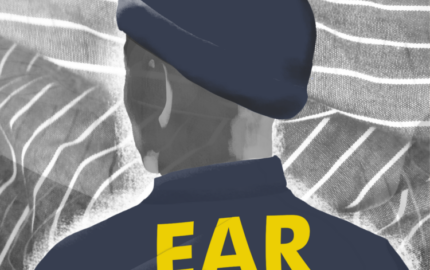A 5-year-old boy and his older brother, who live in a slum of India, board a train to go beg in a nearby city. The boy wakes up and his brother is gone, and the train has taken him nearly a thousand miles from home. He does not know his address; he does not even know his last name; he does not speak the language in the city where the train puts him out, Calcutta. Back home, his mother, an impoverished day laborer, is out of her mind with worry and grief. Her older son is dead. Her younger has not been seen since boarding that train.
In “Saroo Brierley Reunited with Mother Fatima Munshi after 25 Years,” our latest Notable Narrative, Associated Press reporters Kristen Gelineau and Ravi Nessman tell the story. The headline makes the outcome obvious, but what’s riveting is the journey, and its aftermath and cost. The storytelling is streamlined, tight and full of moving detail.
Here, they write about Fatima, the mother, before her son’s disappearance:
And here they write about the grownup Saroo, now separated from his homeland and his birth family:
Gelineau is based in Sydney for the AP and Nessman in Delhi. They reported from two continents and wrote the story together. The AP initially ran the piece in two parts, and the Huffington Post joined them, separating them structurally by a photo slideshow. Check back tomorrow for our conversation with Gelineau and Nessman, and their Miami-based editor, Mary Rajkumar, about this piece.
In “Saroo Brierley Reunited with Mother Fatima Munshi after 25 Years,” our latest Notable Narrative, Associated Press reporters Kristen Gelineau and Ravi Nessman tell the story. The headline makes the outcome obvious, but what’s riveting is the journey, and its aftermath and cost. The storytelling is streamlined, tight and full of moving detail.
Here, they write about Fatima, the mother, before her son’s disappearance:
Then the life she had worked so hard to rebuild collapsed.
Her husband stopped coming home, first for a night, then several nights in a row. He stopped giving them money and food. Eventually, even as Fatima grew pregnant with their daughter, he took a second wife. Fatima blamed black magic.
One Sunday, a desperate Fatima, with her baby girl on her hip, confronted him. She beat him with a shoe. He beat her with a stick. Soon the whole neighborhood gathered, and in front of the village elders, they instantly divorced.
Fatima stood on her doorstep, back at the bottom where she had started, an abandoned woman with four young children and no family for support. She was the poorest in a neighborhood of poor people, a charity case even for those who had nothing.
And here they write about the grownup Saroo, now separated from his homeland and his birth family:
The questions about his past still simmered. The map of India hanging on his bedroom wall, a certain song or something learned in school could ignite a blaze of images from his old life so vivid it felt like he was still there.
On restless nights, he thought about his mother. Was she OK? Was Guddu?
Sometimes he cried. Often, he prayed: If there is anything magical in the world, he pleaded silently, could you help me find my family?
Gelineau is based in Sydney for the AP and Nessman in Delhi. They reported from two continents and wrote the story together. The AP initially ran the piece in two parts, and the Huffington Post joined them, separating them structurally by a photo slideshow. Check back tomorrow for our conversation with Gelineau and Nessman, and their Miami-based editor, Mary Rajkumar, about this piece.


